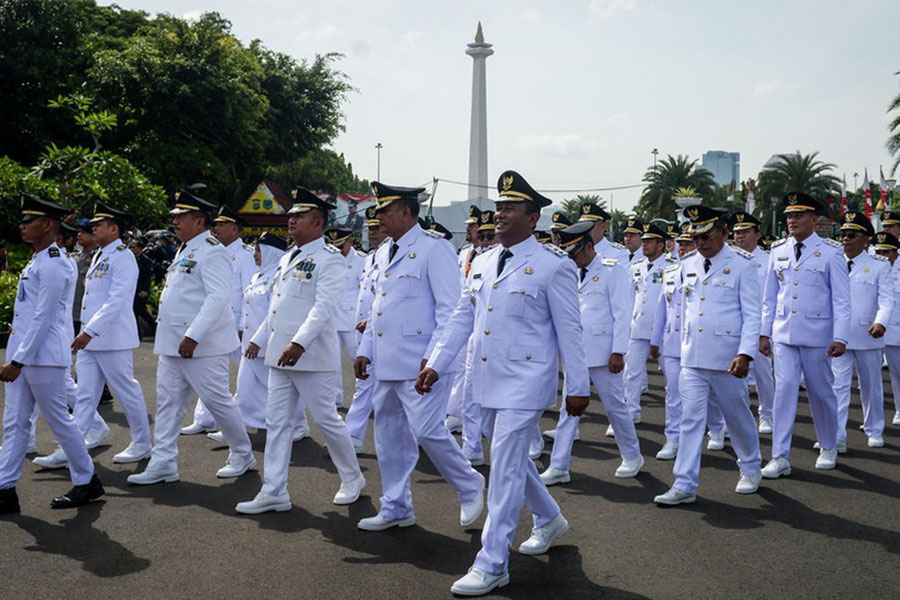The Relevance of Bureaucratic Transformation Challenges in Central and Regional Government Management in Realizing Asta Cita

There was a significant moment at the end of June that deserves public attention.
A total of 86 regional leaders from across Indonesia gathered for five days in the second wave of the retreat organized by the Ministry of Home Affairs (Kemendagri) at the campus of the Institute of Public Administration (IPDN) Jatinangor, which concluded on Thursday, June 26, 2025.
This was not just another routine meeting or ordinary training session. Instead, it showcased a new spirit in governance: more open, more participatory, and more oriented toward tangible public service.
Thus, this retreat also gave hope for a more dialogical model of governance.
Too often, we have seen regional leaders positioned merely as technical executors of central instructions.
Yet, the regions hold enormous potential, experience, and even innovation that can serve as national inspiration.
When regional leaders are given space to voice their perspectives and strategies, national policy becomes more relevant and contextual.
There is a shift from a purely “top-down” model to a “bottom-up” one – or at the very least, toward a more equal and respectful model.
This retreat therefore not only brought regional leaders together with the central government, but also with each other.
It created cross-regional networks that are not just for courtesy visits, but as platforms for exchanging concrete solutions.
We know that many local governance challenges share similar patterns: slow bureaucracy, limited budgets, local political pressures, and suboptimal public services.
By meeting and dialoguing, these leaders can learn from one another without having to wait for change from the center.
In the long term, such interregional communication networks can become a force in driving a more comprehensive reform agenda.
Moreover, the challenges of development ahead will not be any lighter.
Climate crisis, regional inequality, fiscal pressures, digital disinformation, and growing public expectations of services all demand collaborative and swift responses.
The central government cannot tackle these challenges alone.
The role of regional leaders is no longer just to extend the hand of the center, but to act as local leaders capable of formulating context-based solutions while still aligning with national policy.
This retreat, then, is not the final answer.
It is only a first step.
The real challenge lies in follow-up.
Will the spirit built in Jatinangor continue in joint evaluation mechanisms?
Will there be regular forums to systematically listen to the voices of regional leaders?
And most importantly, will central policies truly be open to criticism and correction if they prove misaligned with local realities?
The retreat will only be meaningful if it becomes part of a sustainable policy ecosystem.
There needs to be a system of documentation, post-retreat reporting mechanisms, and direct integration into the drafting of Regional Medium-Term Development Plans (RPJMD) as well as evaluations of regional leaders’ performance.
Without this, such an important moment risks fading away, like many forums before it.
Effective governance cannot be built solely through documents and instructions. It is born of the willingness to listen and to collaborate.
It requires the courage to acknowledge that not all central policies are always right, and not all regions must be standardized.
The people do not need perfect leaders, but leaders who are willing to learn, change, and work together.
The regional leaders’ retreat is an early reflection of that hope.
For this reason, the public also has an important role: to ensure that this process does not stop at a closed-door forum.
As citizens, we must ensure that the spirit of the retreat truly impacts better public services – faster, cheaper, and more humane.
Effective government is not measured by speeches and performance reports, but by how people feel helped in their daily lives.
Should such retreats continue to be held in the future? The answer is certainly yes.
In fact, they should be developed into regular national forums, involving not only regional leaders but also legislators, community leaders, academics, and citizen representatives.
In a healthy democracy, such dialogue is not a luxury but an absolute necessity. For it is through dialogue that wise policies are born.
In simple terms: this retreat is a step toward more sensible governance.
One that does not just think from behind a desk but listens directly to practitioners on the ground.
One that does not merely regulate from the center but also understands the pulse of the regions.
This is a new form of public service—one that is not arrogant, but humble and collaborative.
May the spirit from Jatinangor never fade.
Because Indonesia needs more spaces like this – where its leaders can sit together, speak honestly, strengthen one another, and ultimately move in unison toward a single goal: building a government that serves the people, not the other way around.
Prof. Dr. Ermaya Suradinata, SH, MH, MS, was Governor of Indonesia’s National Resilience Institute (2001–2005) and Director General of Politics and Social Affairs, Ministry of Home Affairs (1998–2000). He is an Expert Council Member of BPIP (Agency for Pancasila Ideology Education) in the field of Geopolitics and Governance, and Chairman of the Advisory Board of the Center for Geopolitics & Geostrategy Studies Indonesia (CGSI).
